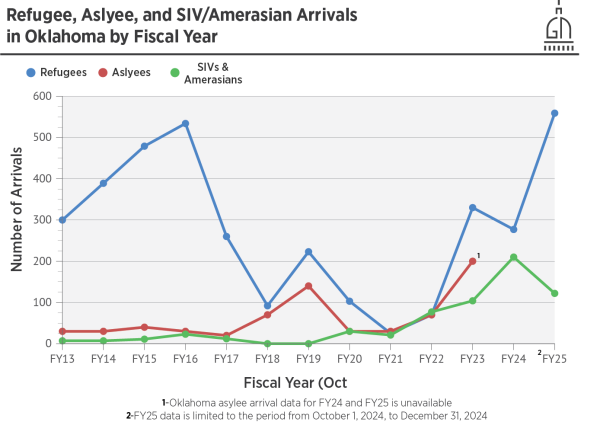Oklahoma full abortion ban harkens back over 100 years
Hundreds of protesters rally outside the Supreme Court on Dec. 1, 2021, as justices hear arguments in a challenge to a strict Mississippi abortion law that will be decided later this month. (Cronkite News Photo by Ulysse Bex)
Oklahoma made history last month as the first state in 50 years to put a full ban on abortions. This stringency has not been seen in most states in more than 100 years.
Gov. Kevin Stitt last month signed Oklahoma House Bill 4327, the most restrictive abortion ban in the country banning all abortions starting at conception.
“From the moment life begins at conception is when we have a responsibility as human beings to do everything we can to protect that baby’s life and the life of the mother,” said Stitt. “If other states want to pass different laws, that is their right, but in Oklahoma, we will always stand up for life.”
But the law is similar to an Oklahoma 1910 law, which held that anyone who caused a woman to miscarry her baby would be guilty of a felony. Rather than reinforcing the old law, legislators drafted a new one to avoid an outdated law’s backlash.
“The new Oklahoma law is very strict because it starts at conception. It does not start at a certain week. It does not start at a certain term. It does not exclude for rape or incest. It starts at conception and a lot of women, if we’re talking about it, don’t even know they’re pregnant at conception,” said State Rep. Ajay Pittman (D-Oklahoma City).
The 1910 law was a criminal law, whereas the new law is not. With the 1910 law, there was a $5,000 fine or jail time. No one being prosecuted under the new law will face jail time, said Pittman in the interview.
“By 1900 every state had a law forbidding abortion at any stage, whether through the use of drugs or procedures. Almost all the laws passed during this time included a therapeutic exception, where licensed physicians could provide abortions at their own discretion as long as the abortion preserved the life of the mother…These laws also created a large black market for women who could not access or obtain abortions through medical channels,” said Jennifer Holland in her book — “Abolishing Abortion: The History of the Pro-Life Movement in America.”
The motive behind the 1910 abortion ban and the 2022 ban is backed by different beliefs.
“Some historians have suggested that laws against post-quickening abortions were primarily intended to protect the health of the pregnant woman—not fetal life—as it was much more common for women to die during abortions that used instruments rather than herbal abortifacient,” said Holland in her book.
In 1910, the mother’s health was being prioritized, now the priority of this new bill is aimed at the fetal life.
“Even before the living life, you’re putting a life that is not fully developed yet before a living life that has been thriving, working and has a job, that may even have other children to provide for, has a family and that healthcare of individuals is not thought of,” said Pittman. “I think it breeds a larger conversation that we’re not having. Are insurance companies covering the fetus, are insurance companies covering a mother if she has to bury a baby?”
A decision will be on hold until late June when the Supreme Court is expected by many to overturn the Roe precedent. If Roe is overturned, this will give states the right to decide whether abortion will remain legal.
“I think that overturning Roe v. Wade is moving backward, women should be gaining rights at this point in time rather than losing them,” said Abby Chaffin of Tulsa. “I personally think that this is a problem of separating church and state. I feel that many of the people making these laws are taking religion into consideration.
“I believe that if you are a Christian and follow the Bible, it is absolutely your right to choose not to get an abortion However, many people aren’t Christian and it’s not fair for Christian beliefs to be determining the rights that women have over their own bodies,” said Chaffin.
Oklahoma is one of 27 states The Guttmacher Institute had believed would ban abortion if Roe v. Wade was to be overturned.
“I promised Oklahomans that I would sign every pro-life bill that hit my desk and that’s what we’re doing here today,” said Stitt.
This bill is intended to be enforced through a bounty hunting mechanism. According to Abortion Finder, this puts the enforcement in the hands of neighbors and citizens by offering a monetary reward to someone who successfully sues another person for aiding in abortion.
“The public safety of all Oklahomans is our top priority and my clients include the 3.9 million-plus Oklahomans plus including our unborn children,” said Oklahoma Atty. Gen. John O’Connor. “Over 5,000 humans, Oklahomans give their lives each year unwillingly to abortion with the consent of our government and we’re hoping for the day that ends.”
In addition to the insurance issues, unresolved is whether a fetus can be deducted on the state income tax.
Gaylord News is a Washington-based reporting project of the University of Oklahoma Gaylord College of Journalism and Mass Communication. For more stories by Gaylord News go to GaylordNews.net.







